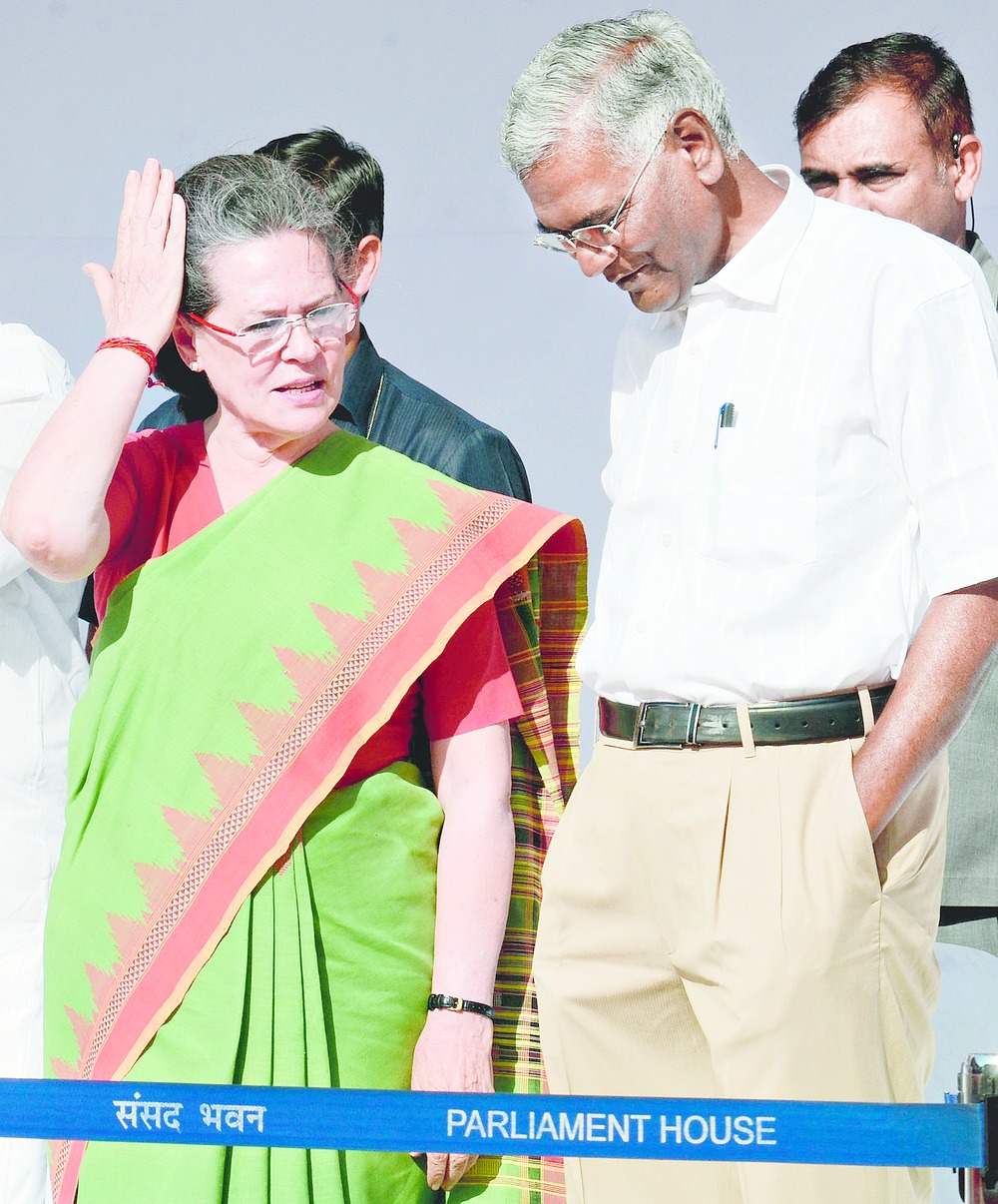
New Delhi, April 14: On the 124th birth anniversary of Babasaheb Bhimrao Ambedkar, the RSS asked why he was awarded the Bharat Ratna 10 years after Mother Teresa.
Speaking at the launch of collectors' issues on Ambedkar by the Sangh's English and Hindi weeklies, Organiser and Panchjanya, chief guest Suresh Bhaiyyaji Joshi said: "Ambedkar had to live with injustices. A person in his place would have revolted. He was not a rebel but a social reformer. Yet, see the Bharat Ratna. He had to wait until 1990 before he was awarded one. Mother Teresa got it 10 years before him (in 1980, a year after she received the Nobel Prize). This is something we should ponder over."
The comment of the Sangh general secretary, who is also the organisation's second-in-command, was in line with a political theme that predominated every speech delivered this evening.
The point that the speakers sought to make was that Ambedkar's principal identity was that of a "Hindu" - hence the comparison with a Catholic nun - and that he was a "nationalist" and a "patriot", not just a Dalit icon.
Narendra Jadhav's presence and his address were the best endorsements the RSS could have hoped for. A former bureaucrat and economist, Jadhav was a member of Sonia Gandhi's National Advisory Council as well as the Planning Commission in UPA II. He came in handy when the Manmohan Singh government wanted to push a "pragmatic" line on the Food Security Bill, as a counterpoint to Sonia's insistence on giving away limitless largesse to the disempowered that the government feared would drain the exchequer.
"It's an insult to describe this great patriot as just a Dalit leader.

His sense of nationalism was not just about the transfer of power from the British to the Indians, it was about national reconstruction, social and economic equity, redistributive justice and democracy in a genuine sense," Jadhav said, questioning the idea of certain parties seeking to appropriate Ambedkar's legacy.
The emergence and success of the Bahujan Samaj Party had rattled the Brahmin-helmed RSS because Kanshi Ram's thrust on empowering the Dalits went hand-in-hand with putting down the upper castes.
The Sangh tried to paper over the caste divisions the BSP had reinforced, projecting Ambedkar as "pro-Hindu" and "anti-Islam", by showing Dalits to be more pious than other Hindus. With Jadhav, a Mahar Dalit like Ambedkar, the Sangh's strategy was to try and distance Ambedkar from the BSP political stream and integrate him with the larger "Hindutva" flow.
Jadhav admitted his friends were not enthusiastic about his appearance on an RSS forum. "I was asked, but why this platform? I am not a member of any political party but if an organisation attempts to understand Ambedkar from a different angle, I consider it a privilege to participate in that effort. I told my friends, please keep your objections to yourself, I am not backing out," he emphasised.
Joshi compared Ambedkar with RSS founder Keshav Baliram Hedgewar.
Hedgewar, he said, was just two years older than Ambedkar, their political work was launched around the same time and their goals were similar. "Tap the innate strengths of the nation and empower India to stand up to the rest of the world," said Joshi, before getting to the principal theme of the discourse.
"If there is one word whose pursuit and practice can end all manner of discrimination, it is Hinduism. Those who attend the Sangh's shakhas (daily camps) come in as Hindus and not as members of a caste. That was Ambedkar's vision, to leave caste aside, identify with Hinduism and end discrimination," he said.
However, he had a glib explanation for why despite Ambedkar's purported love for Hinduism, he and his followers had embraced Buddhism on October 14, 1956. "When he converted, he adopted a faith that was part of the Hindu 'samaj' (society)," claimed Joshi, glossing over the fact that unlike Hinduism, Buddhism does not recognise caste divisions.











